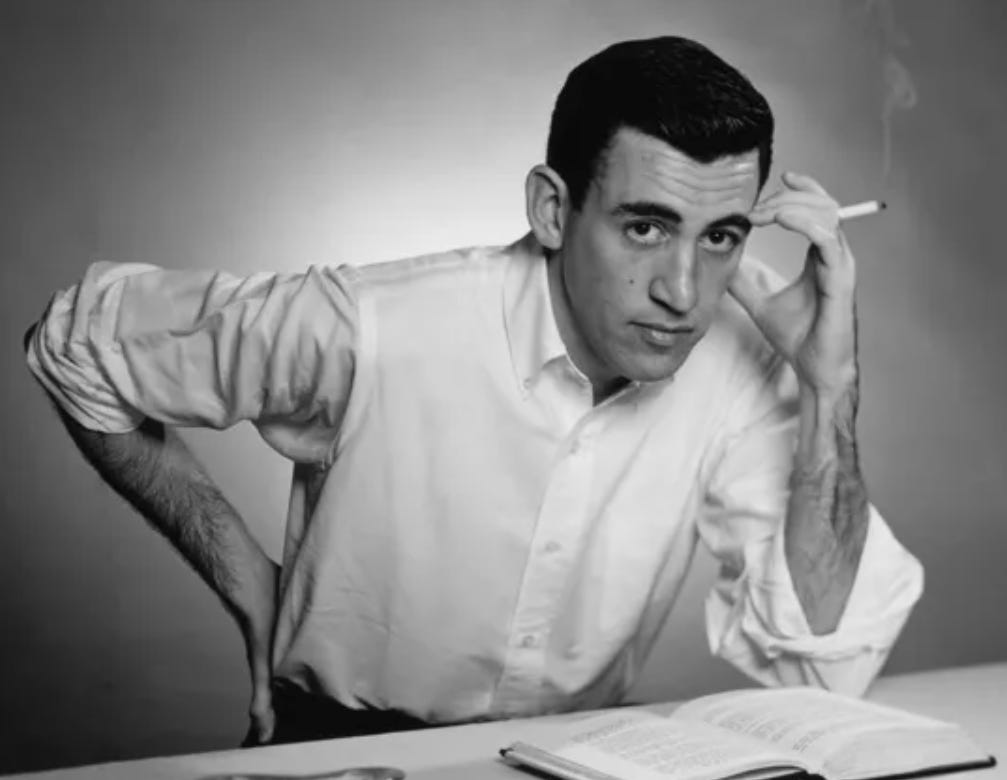"Don't ever tell anybody anything. If you do, you start missing everybody."
J.D. Salinger
J.D. Salinger, born on January 1, 1919, is one of the most iconic American writers, best known for his novel The Catcher in the Rye. The book, published in 1951, captures the angst and alienation of adolescence through the eyes of its protagonist, Holden Caulfield.
This quote is delivered by Holden at the very end of the novel, encapsulating his complex and contradictory feelings towards human connection. Throughout the story, Holden grapples with feelings of alienation, disillusionment, and deep-seated pain following the death of his younger brother, Allie. His journey through New York City is marked by encounters with various people, each of which deepens his sense of detachment and mistrust of the adult world, which he repeatedly condemns as "phony."
The advice Holden gives—"Don't ever tell anybody anything"—can be seen as a defense mechanism. By keeping his thoughts and emotions to himself, he attempts to shield himself from the vulnerability that comes with emotional intimacy. To Holden, sharing his feelings means exposing himself to the risk of rejection, misunderstanding, or, worse, attachment. The latter part of the quote—"If you do, you start missing everybody"—reveals the pain that comes with forming connections. For Holden, the act of opening up and letting someone in is closely tied to the inevitability of loss, as people drift away, relationships change, or loved ones die.
This perspective is particularly poignant given Holden's experiences throughout the novel. He has been deeply hurt by the loss of his brother and the alienation he feels from his peers and the adult world. His fear of attachment is a way to protect himself from further pain. Yet, despite his attempts to isolate himself, Holden's longing for connection is evident. He reaches out to people, whether it's his old teacher Mr. Antolini, his younger sister Phoebe, or even strangers in the city, indicating a deep, albeit conflicted, desire for human contact.
Salinger’s depiction of Holden Caulfield has resonated with generations of readers, making The Catcher in the Rye a seminal work in American literature. The quote reflects a universal struggle—the tension between the desire for connection and the fear of vulnerability. In capturing this struggle, Salinger gives voice to the often unspoken fears and anxieties of adolescence and beyond, making Holden's journey a powerful exploration of the human condition.




